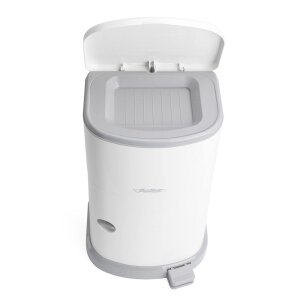- /
- Incontinence Supplies
- /
- Discharging Incontinence
- /
- Pessaries







Pessaries will support you from the inside
Beside different other reasons, a prolapse can cause incontinence. If you experience this, your pelvic organs like the uterus, the vagina or the bladder don’t stay in their original place any longer, which is caused by weak pelvic muscles. People affected by a prolapse may feel discomfort or pressure in the lower abdomen, may palpate a bulge or may not be able to control their bladder as good as they used to. A pessary can alleviate these symptoms – at least for women. The cause leading to the lowering of the bladder, uterus or vagina is a weak pelvic floor. This is mostly caused by child birth, age or operations and will not be improved by pessaries.
Shapes, sense and location
There is a vary of different products in this category, such as cube pessaries, rings with and without edges as well as thicker parts (urethra pessary) or two-dimensional curved models (Hodge). Furthermore, there are also pessaries looking like colanders and more shapes. All of them are made of silicone and designed to support their users from the inside. They push the neck of the bladder back into its original position and eventually minimize the “heavy” feeling in the lower abdomen as well as the incontinence. After talking to their physicians, women can place the pessary every day by themselves or visit their gynecologist every few weeks. Please note: A pessary doesn’t protect women from getting pregnant! Although they can look like diaphragms, they don’t stop sperms from getting to the egg cells.
Our FAQs about pessaries:
How does a pessary work?
Pessaries are small medical devices used for continence therapy of women. They support the weak pelvic floor of its users from the inside by pushing the organs back into their original position. In doing so, women feel less pressure caused by the prolapse of the bladder, vagina or the uterus and gain back control over their bladder. A well-placed pessary in the right shape can make an operation obsolete.
Why does my pessary fall out all the time?
If your pessary doesn’t stay in place, it might be too small. You could try a bigger one and maybe even a different shape.
What does my insurance cover?
In Germany: If the physician prescribed you a pessary, the insurances usually cover the costs for it.
In case you couldn't find the product, you were looking for or need further information, do not hesitate to contact us. Our customer service team looks forward to hearing from you.
In case you are ordering from abroad (outside of Germany) you’ll find information about postage rates here.










